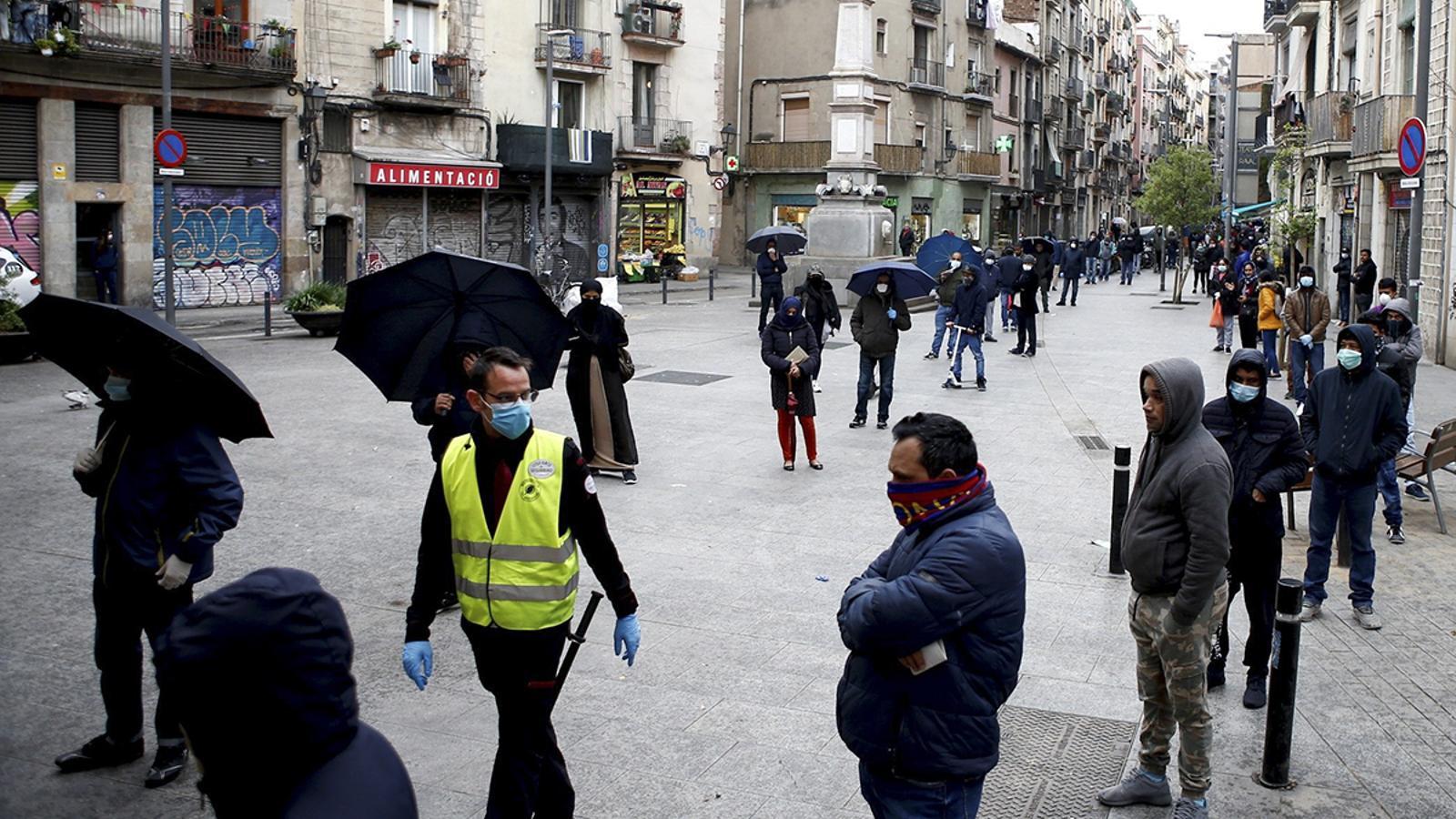Barcelona's social services have attended to 22% more people since covid broke out
One in four users has never asked for assistance before or has not needed help for over a year

The economic situation is beginning to improve after the worst of the pandemic and lockdowns, but the improvement has not yet reached the most vulnerable sectors of the population. This is clear from the annual balance made by Barcelona's social services, which shows that in 2021 97,531 different people received assistance, 10.36% more than the previous year and 22.56% more than in 2019 (79,575). This reveals a particularly significant fact: 24% of the people who asked for help last year did so for the first time or else had not requested assistance for over a year. The figure, however, is slightly lower than the 32% detected in 2020 and, therefore, shows a slight stabilisation.
"The economic improvement is not reaching those who are in a situation of greater need," City Council commissioner for Social Action Sònia Fuertes lamented at a press conference. Fuertes also highlighted the female predominance among the people served - 63% were women - and the chronification of problems to access housing: of the €41.3m that went to different social benefits, €25.8m were aid to cover housing needs. This chapter has grown by 7.5% and represents more than half of the total. Fuertes has argued that this shows the need to create "a different regulatory framework" and has asked for the involvement of the Generalitat and the State to approve the state housing law "as a first step" and to extend benefits for all people at risk of poverty.
Last year also marked a record in the number of people assisted by social services, and their distribution inside the city is not surprising: four times more have been helped in Nou Barris (38,835) and Ciutat Vella (36,801) than in Les Corts (9,326). As for the people who in 2021 went to social services for the first time, the municipal government remarks that many come from the informal economy, which is the "slowest" when it comes to recovering from a crisis.
In her assessment of the year, the commissioner for Social Action remarked that staff had been increased by a hundred workers and that the average waiting time for a first appointment has been reduced from 21.34 days in 2019 to 12.4 in 2021.
